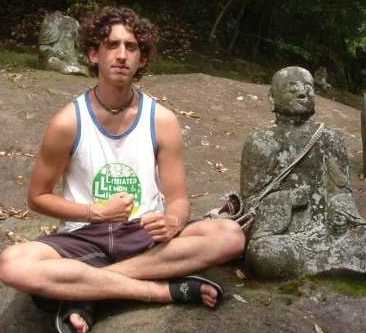...Y Mostraron la Hilacha
“Hilacha” is a quirky Spanish word to describe a loose thread in a piece of clothing and “mostrar la hilacha” (lit. “to show the loose thread”) is a widely used colloquialism. In the same way a loose thread on an expensive shirt undermines its quality, “mostrar la hilacha” is to find a blemish on an otherwise flawless image. Its meaning is close to the English “to show one’s true colours,” and its use is not uncommon in the political arena.
“Hilacha” is a quirky Spanish word to describe a loose thread in a piece of clothing and “mostrar la hilacha” (lit. “to show the loose thread”) is a widely used colloquialism. In the same way a loose thread on an expensive shirt undermines its quality, “mostrar la hilacha” is to find a blemish on an otherwise flawless image. Its meaning is close to the English “to show one’s true colours,” and its use is not uncommon in the political arena.
As predicted, Michelle Bachelet won nearly 46% of the votes (4% under the 50+1 needed for election) on last Sunday’s election. Both right-wing contenders, Sebastián Piñera and Joaquín Lavín, followed with 25% and 23% respectively and Tomas Hirsch with 5%. A run-off has been set for January 15th between Bachelet and Piñera, and as the final countdown begins both coalitions have already started showing their teeth.
The first incident happened soon after the election, when members of Bachelet’s team accused Piñera of receiving phone calls from his party offering bribes. Bachelet, standing by her constituents, accused Piñera of using an (sic) “age old tactic of the right wing, which is to offer money and presents in exchange for political support.” She was, of course, referring to the well-known practice of cohecho, punishable by law. Piñera swiftly denied the accusations and in turn accused Bachelet’s coalition of spreading false rumours for electoral purposes. Bachelet proceeded to clarify it was not members of her party who were offered bribes, but a number of citizens in poorer sectors. In the light of this sudden change of rhetoric, Piñera questioned Bachelet’s honour and credibility in public.
Soon after, Piñera’s own moral authority was challenged when dirty episodes of his political career were brought to light, such as a telephone-tapping scandal with UDI senator Evelyn Matthei in the early 1990s and the dubious selling of stock for the then newly privatised electricity company, Endesa.
On the side of the losers, former UDI candidate Joaquín Lavín announced his “intimate friendship” with Piñera –even after months of gritty confrontation with the RN candidate-, and Tomas Hirsch urged his supporters to annul their votes on the upcoming run-off. While Hirsch’s original candidature was received coldly by most left-wing parties because it fragmented the bloc, his comments alienated the left even further. The communists, in a turn of events, decided not to back Hirsch and offered their support to Bachelet if she complied with a set of five demands, one of them issuing the abolishment of the binomial electoral system established during the dictatorship. Bachelet’s team, wary of a sudden upsurge in right-wing votes, agreed to these demands and urged Piñera to establish his position on the subject through a televised debate.
Piñera is now faced with the dilemma of the binomial issue. While his own party (RN) is not in favour of the system, half of his voters (the 23% who supported Lavín) and the authoritarian UDI do not want it to change. Mario Puccio, spokesperson for the current government, has referred to Piñera as “a victim of the extreme right,” while Piñera himself claims the debate on the binomial system is just another “political manoeuvre.”
The debate is scheduled soon after New Year, and teams on either side are busy trying to complicate matters further in search for additional votes. Power politics are never silky, and right now there seem to be enough hilachas to reel a few spools.

No comments:
Post a Comment